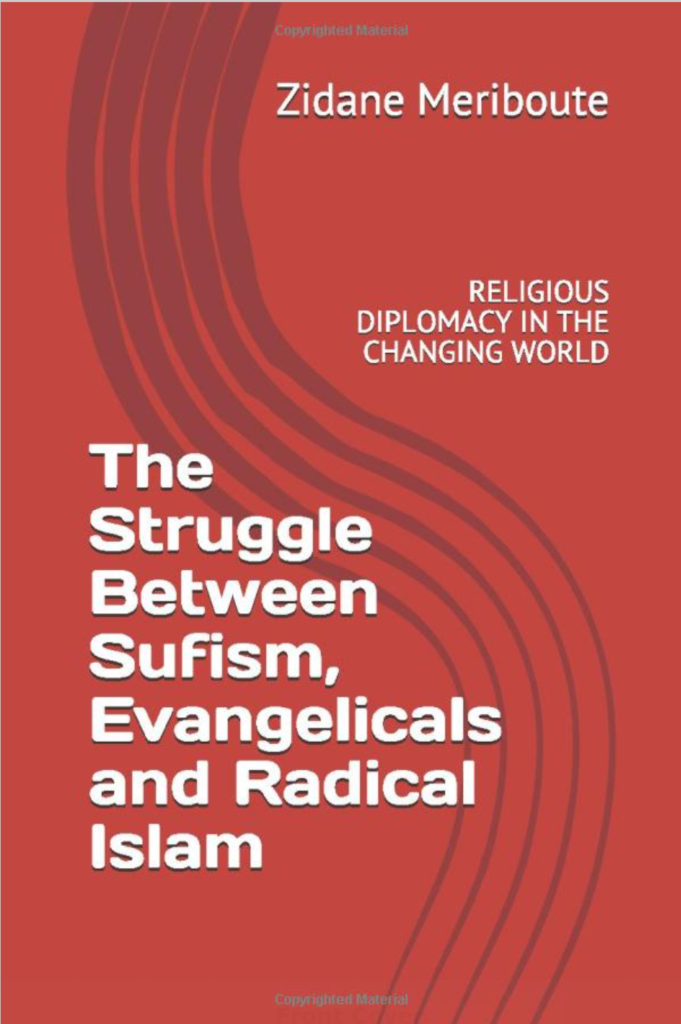PART ONE

Introduction
- The Complexities of Contemporary Islam
- Sufism
- The Free Thinkers
- Salafism
- The Evangelical Christians
- Global Religious Diplomacy
- The Ideological and Material Poverty of Today’s Muslims
- Sufi Islam History
- Sufism: definitions, history and key values
- A definition of the word “Sufi”
- The earliest Sufis
- Purity (“safa)” and asceticism (“zuhd”) among the early Sufis
- The historical emergence of the Sufi brotherhoods: Abd al-Qadir al-Jilani and the Qadiriyya
- Innovation in Sufi thought: Al-Ghazali and Ibn Arabi
- The personal Sufism of Abd al-Qadir Al-Jaza’iri: a Sufi political leader
- Sufism In The World Today
- The Sufi Brotherhoods
- The resurgence of Sufism in the Turkic speaking world in Central Asia and in China
- Turkish Sufism today: its practical role
- Sufi Penetration in Central Asia and the Caucasus
- The resurgence of Sufism in Central Asia and the Caucasus
- The influence of Turkish-speaking Sufism in central and eastern Europe
- China: the repercussions of Islam in Asia and the re-emergence of Sufi spirituality
- Sufism in the Indian sub-continent: an uneven picture
- Poetical Islam and Iranian mysticism
- The return of Ni’matullahi Sufism to Iran
- The Ismaili mysticism of the Aga Khan: a rational Islam
- Ismaili doctrine: mystical and modern
- Sufism Today In Egypt, The Maghreb And Europe
- Attempts to revive Egyptian Sufism
- The Maghreb recovers its old values
- The historical roots of Maghrebi Sufism
- Sheikh Tijani’s doctrine
- The philosophy of non-violent resistance of Mauritanian and Sahelian Hamalism
- The accretion of wealth by some Sufi families
- Concluding remarks on Sufism in the Maghreb and the Sahel
- Muslims in Europe: ideological diversity and the search for Sufism
- The ideological diversity of Muslims in Europe
- Islamic free thinkers in Europe
- “Tajdid”: Muslim revivalism in Europe
- European Salafism
- European Sufism
- The isolation and division of Muslims in Europe
- The Political And Economic Role of The Sufi Orders In Africa
- The “black Islam of the Sufi brotherhoods in Africa
- Sufi Islam in West Africa: entrepreneurial Mouridism
- The geography of Islam in East Africa and Sudan
- Islam in Somalia
- Al-Shabab’s teaching and ideology
- The structure of al-Shabab
- The Islah (Reform) Party
- The Islamic Coalition: Majma al-Islam, led by Sheikh Sharif Muhideen
- Ahl al-Sunna Wa-l-Jama’a
- Islam in Sudan
- The political and economic role of the principal Sufi orders
PART TWO
- Salafism And Fundamentalism
- Salafist history and doctrine
- Global Islamic preaching networks: new developments
- The bedrock of militant global Islamism: the Muslim Brotherhood
- The influence of the Muslim Brotherhood in the Arab world
- The Muslim Brotherhood: Conclusion
- “Hizb ut-Tahrir” and the restoration of the Caliphate
- The Arab elite in Hizb ut-Tahrir
- The doctrinal basis of “Hizb ut-Tahrir”
- Tablighi Jamaat : a worldwide organisation
- The role of repentance (tawba) and the Tablighi rite of initiation.
- Tablighi Jamaat: conclusions
- Some observations on the objectives of the global Islamic movement
- Non-peaceful groups and the emergence of federal Al-Qaida:
- Al-Qa’ida: the origins
- The elements of federal Al-Qa’ida
- The World-Wide Scope of Federal Al-Qa’ida (al-muttahida)
- The theological diversity of Federal Al-Qa’ida’s and its self-promotion
- Al-Qa’ida: echoes of the provisional IRA
- Al-takfir wa-l-hijra (Jama’at al Muslimin) an expanding model of an alternative society
- Conclusion
PART THREE
- Islam And The Global Reach Of Evangelical Christianity
- Who are the Evangelicals? Where do they operate?
- A historical summary
- The origins of Evangelical fundamentalism in the United States and Europe.
- The global ambitions of contemporary Evangelicalism
- The Evangelical quest to rule the planet
- The strategy for the conversion of Muslims and Jews
- The Middle East
- The conversion of the Jews, in Israel and the world at large
- The Maghreb
- Africa
- Towards a puritan “Yalta”: Salafists and Evangelicals share the world
- The Possibility Of Dialogue: Can There Be A New Global Religious Diplomacy?
- Key parameters for global religious diplomacy
- Some lessons to be drawn from the practice of global religious diplomacy
- Involve a wide spectrum of religious factions
- Involve the “wise men”
- Be aware of prejudice
- Understanding structures: tribes and clans
- Family, clan and tribe take precedence over the Islamic state
- Muslim education
- Global religious diplomacy: summing up
General Conclusion